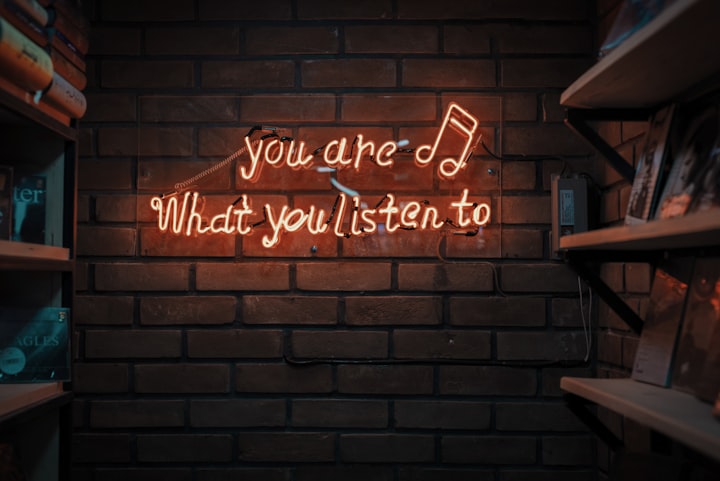Will an excessive amount of music be terrible for your emotional wellness?
Now is the right time to acknowledge the cold hard facts. Specialists share their bits of knowledge on the effect music has on your emotional wellness — great and awful

The power behind music
For some individuals, music feels "like something that can reflect how I feel," Heidi Ahonen, teacher of music treatment at Wilford Laurier College in Ontario, Canada, told Deseret News.
While standing by listening to music, you can "have this feeling that I'm not by any means the only one who is encountering this. Someone, perhaps the arranger or the lyricist, likewise encountered this. It's people sharing something and that experience of sympathy is in every case extremely recuperating for us when we go through troublesome things," Ahonen added.
"There is this thought that you can cry with music, and you can giggle with music. You can be irate with music, which is truly significant in light of the fact that occasionally we don't have individuals around us who are compassionate to our encounters. That sympathy is tracked down in music all things considered," she said.

Music assists individuals with figuring out things, including things that are troublesome, said Joshua Knobe, a teacher of mental science at Yale College. "There's this thing you can get from some music where you think, this is the very thing that music is actually about. This is what's going on with life."
Knobe was important for an examination group that as of late concentrated on why individuals appreciate paying attention to miserable music. The review, distributed in the Diary of Stylish Schooling, found that the very feelings that cause you to feel near others in discussion are capable while paying attention to miserable music.
"You feel somewhat less alone on the planet. You feel associated with another person," Knobe said.
Genuinely, the body responds to music in more ways than one, incorporating with fluctuating degrees of dopamine and cortisol, the synthetics in the mind liable for feeling cheerful or pushed, said Mackenzie Oprean, a board-ensured music specialist at the College of Utah's Huntsman Malignant growth Foundation.
Music influences us all inwardly, genuinely and intellectually.
Music and emotional well-being
Music treatment is a training where music commitment — exercises like songwriting, paying attention to music, singing and playing an instrument — is utilized to address the close to home, physical, mental or otherworldly necessities and objectives an individual might have.
"Music intercessions are our vessel to address a wide range of individualized objectives. We work with profound wellbeing, actual wellbeing, engine capability, mental incapacities," and even "see people through their finish of-life process," Oprean added.

Daniel Gustavson, an associate examination teacher at the Organization for Conduct Hereditary qualities at the College of Colorado Stone, was beforehand essential for a group of specialists who concentrated on the connection between emotional well-being and music commitment, their discoveries distributed in the diary Nature. "I ponder music commitment similarly I think individuals are utilizing it to help themselves," he said. "I think generally music tuning in, music and particularly dynamic music commitment is most likely truly great for individuals."
A review of music treatment patients at the Huntsman Malignant growth Organization showed that after treatment, 86% of them had further developed mind-set, 78% felt less restless and 77% felt less forlorn.
Yet, for the best outcomes, music you pay attention to necessities to match your temperament. "Assuming I'm feeling truly miserable," Ahonen said, "it could nearly be annoying in the event that my companion comes in and says, 'Goodness, pay attention to this cheerful music.' Don't you know what I'm going through?"
At the point when you feel miserable, you don't as a rule look for cheerful things to cheer you up, Knobe said. All things being equal, individuals tend to "look for outside things that cause them to feel less alone in their misery."
Having the option to articulate your thoughts through music and how you're at present inclination is a significant piece of music treatment. Music's a superb validator that can remove the sensation of seclusion, or feeling "broken," Oprean said.
Yet, that can hit a cutoff.
"The issue begins when they (patients) hold paying attention to that music that summons those tears, brings out that sensation of sadness," she added. "Furthermore, that is what (music specialists) need to look out for."
"Pushing ahead" with music
Will paying attention to an excessive amount of music be terrible for your emotional wellness? These specialists say not typically — except if you will more often than not flounder in gloomy feelings.
"Certain individuals who pay attention to music to incline toward their miserable sentiments might wind up feeling more terrible later," Gustavson said.
Assuming somebody has prior psychological well-being issues — things like sorrow, nervousness or post-horrendous pressure problem — Oprean said that music could become destructive in unambiguous settings. For these patients, music advisors will watch to check whether their music use keeps them in conditions of misery as opposed to eliminates them from that state, particularly assuming those patients have explicit tunes that are attached to horrendous accidents.
Furthermore, certain individuals could begin involving music as a type of idealism, leaving "this present reality to the joy or security of a dreamland," as per the American Mental Affiliation Word reference of Brain science.
Said Ahonen, "In the event that someone can't be peacefully by any stretch of the imagination and they need commotion constantly," or they use music to stay away from the real world, social connections or eye to eye communications, that is not normally an indication of solid music use.
Oprean cautions that when people are encountering trouble and personal unrest, some could utilize music to keep them in that state. Music ought to be utilized "to approve and afterward to push ahead and change our temperament," she says, encouraging individuals to be aware of "what we need to summon."

Music ought to rather assist with peopling stay genuinely and intellectually well — and potential chances to help other people feel well through music are plentiful, specialists say.
The Huntsman Disease Foundation music treatment program welcomes patients, their relatives and Huntsman staff to be important for its Expectation Ensemble, intended to unite the gatherings to make music.
"It's a truly beautiful approach to sort of separate the pecking order among supplier and patient and give that feeling of local area to patients, families and suppliers who are experiencing the impacts of malignant growth on their lives. That feeling of association and local area we viewed as so useful in advancing emotional wellness," Oprean said.
With regards to safeguarding his psychological wellness, Stinson, the record storekeeper, said that he's "figured out how to really sit with feelings without interruption and cycle them in various ways." After extended periods of time at the record shop, he flippantly added that occasionally paying attention to music once he returns home is "the last thing he needs to do."
He added, "I figure music can be a break, and it's a wonderful departure for certain individuals in specific circumstances," yet it's critical to have the option to "manage life itself," and have music help rather than block that advancement.
About the Creator
Analogvibes
I enjoy writing about inspiration, health, art, culture and poetry.






Comments
There are no comments for this story
Be the first to respond and start the conversation.